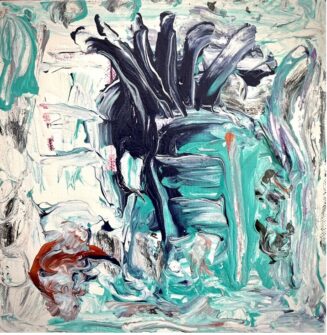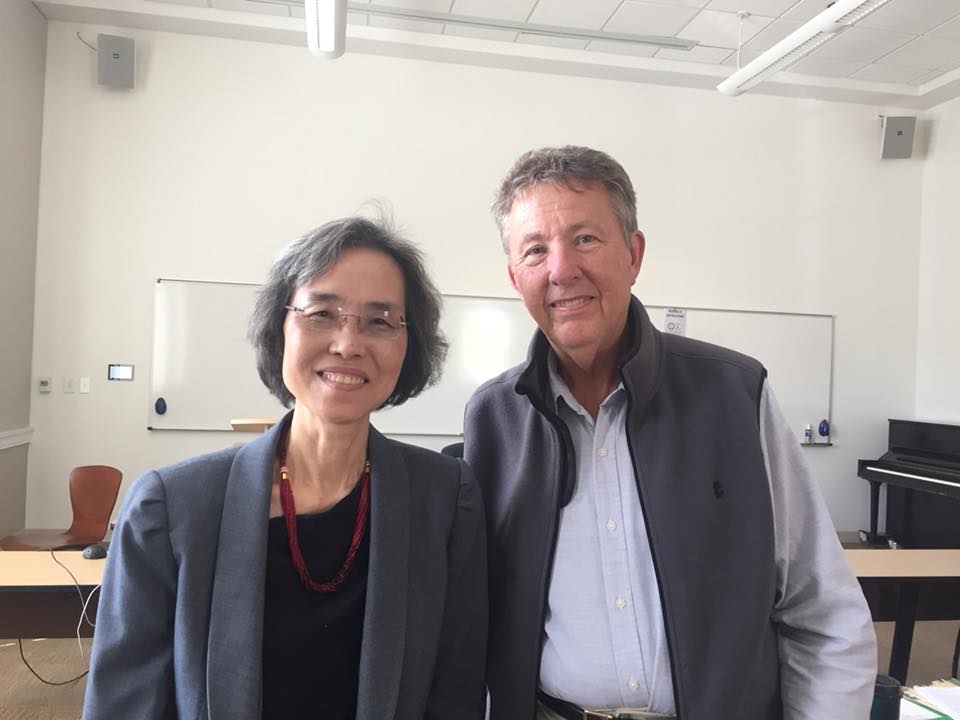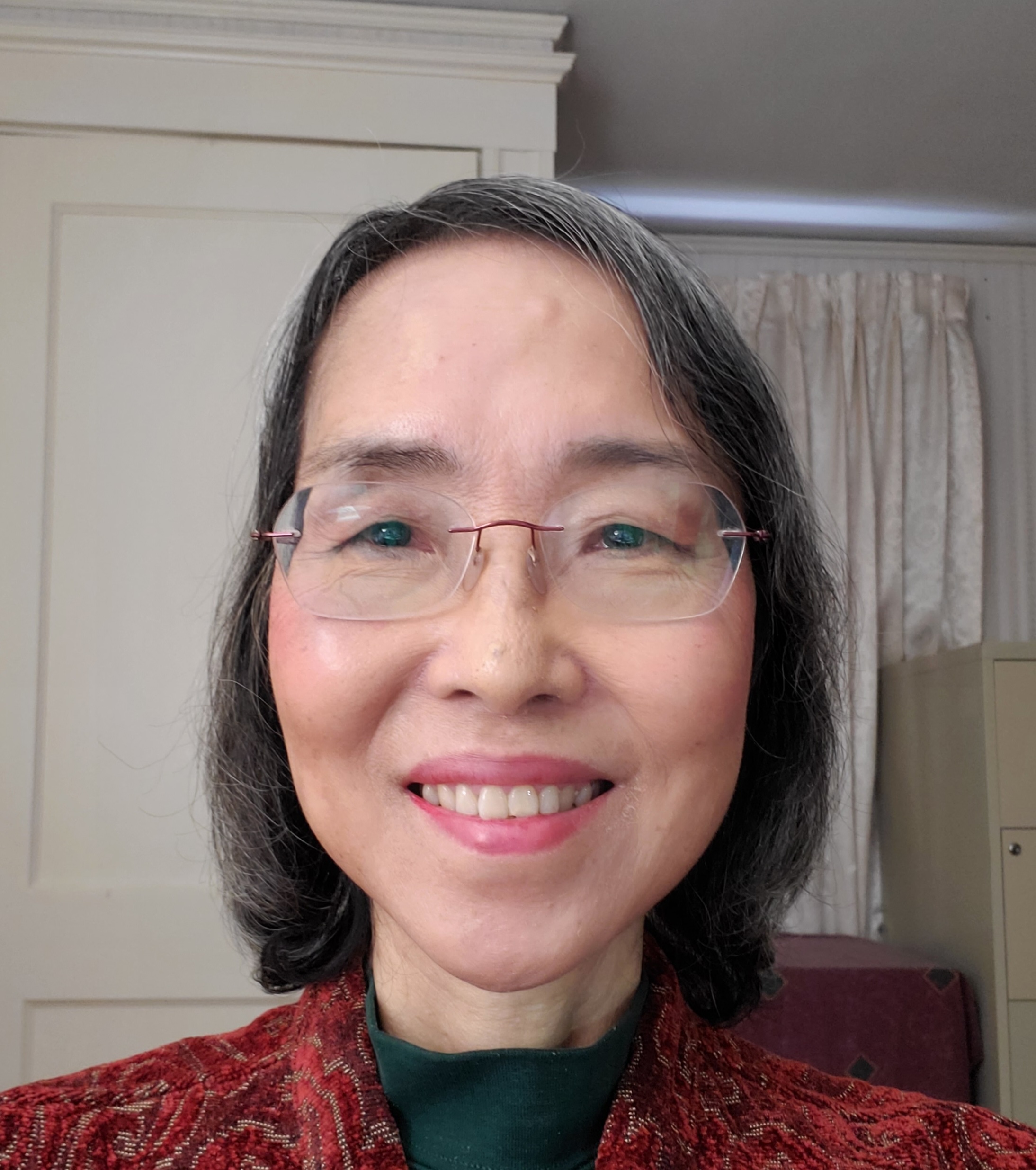
For the eight months prior to Marc Ellis’s death on June 8, 2024, the war in Gaza had been raging. Though cancer ravaged his body, he continued to post on Facebook before he felt too weak to do so. His posts described his disgust and lament over the war, his reflections on life and death, his illness and treatment, and the dreams he had. Sometimes, they were like a long stream of consciousness. After Israel began bombing the Gaza Strip, Ellis also documented his responses to the war through painting. These posts had just one word, “war,” and the date with the accompanying painting below. He took up photography and painting during his later years. I imagine that when words failed, only art and the canvas could express the palimpsest of his moods and emotions.
As a Jew growing up in the United States, Ellis took up the plight of Palestinians and developed a Jewish liberation theology in solidarity with them. He argued that Jewish liberation could not be achieved without the liberation of Palestinians. For him, Jews cannot use the painful history of the Holocaust to justify the displacement, dispossession, killing, and harassment of another people.
It is a pity that Ellis did not live to see the liberation of Palestinians, but instead witnessed Gaza’s history taking a dark turn. His persistence and dedication to a cause that cannot be achieved in his lifetime reminds me of a Chinese saying, “知其不可為而為之” (Do something even though one knows it is impossible). This saying was originally used to describe Confucius, who persisted in persuading society to accept his moral values, even though he knew it was futile. Later, it was used to mean that when one decides to do something, one should consider whether it is right or wrong, not possible or impossible. One may not achieve the goal, but the process matters. One acts according to one’s conscience, though one may not succeed. Ellis worked with Jews of Conscience, and his decades of speaking truth to power inspired postcolonial theologians who fought for noble but distant goals.

I first met Ellis when he delivered a lecture on the day of Yom Kippur in 1991 at Union Theological Seminary. He spoke about his Jewish upbringing and explained his Jewish liberation theology. I remember leaving the lecture hall admiring his courage to speak truth to power. I had renewed respect for the Jewish tradition, which has continuously raised prophets who speak to the human condition. Jewish prophets offered wisdom and solace when the people were weak and oppressed, and caution and admonition when they had gained power but deviated from God’s commandment for justice.
A few years after I listened to Ellis, I began to study postcolonial thought because Hong Kong, where I was born and grew up, was going to be returned from the British to the Chinese in 1997. Some of my reflections and writings have been published in Postcolonial Imagination and Feminist Theology and other works. I argued that theology in the past centuries has been impacted by modernity/coloniality, and that an essential task facing theology is to decolonize the mind and free Christianity from colonizing bias and structures.
Although Ellis did not identify himself as a postcolonial theologian, his thoughts contributed to the study of religion and empire, dispossession, diaspora, exile, the global prophetic, and interreligious solidarity—themes that postcolonial scholars care about. He spoke highly of the work of Edward Said, a Palestinian-American pioneer in postcolonial theory. Ellis wrote, “Said functioned as a contemporary prophet for Jews, warning us that our newfound power has become a form of idolatry” (139). He also contributed to a volume celebrating Said’s legacy of emancipation and representation. In turn, Said affirmed Ellis’s work and appreciated his activism for Palestinians.
Said argued that Palestinians have the power and right to narrate their own stories because many of the reports and writings on Palestinian people, culture, and history are biased and skewed. In a certain sense, much of Ellis’s published work, commentaries, Facebook posts, and paintings are attempts to claim the power to narrate an alternative understanding of Jewish identity, history, and theology that is different from Zionism and collusion with the State of Israel. His fidelity to the prophetic tradition of Judaism and his outspoken stance made him a target of the Jewish establishment. He became an exile in his own community. Like the prophets of old who were rejected—Hosea, Jeremiah, and Ezekiel—many Jewish people did not accept Ellis.
His fidelity to the prophetic tradition of Judaism and his outspoken stance made him a target of the Jewish establishment. He became an exile in his own community.
As a postcolonial theologian, I admired most his courage to attack what he coined “Constantinian Judaism.” Postcolonial and decolonial scholars and theologians have challenged the ways Constantinian Christianity has colluded with colonialism, imperial expansion, White supremacy, genocide, and the plunder of the earth. Ellis insisted that the collusion with state power is not limited to Christianity, for other religious traditions are not immune. Thus, there is Constantinian Judaism, Constantinian Islam, and so forth. He rejected the equation of Judaism with Zionism and challenged the view that if one does not support the policies of the State of Israel, one is antisemitic.
Ellis’s theological and political analysis provides methodological insights that are helpful for postcolonial theologians. He drank deep in the well of his Jewish tradition. He searched broadly for wisdom and inspiration from the Torah and other parts of scripture. He dialogued and debated with his teachers, such as Richard Rubenstein. He interrogated the works of Jewish luminaries—Ellie Wiesel, Martin Buber, Abraham Joshua Heschel, Hannah Arendt, and Emmanuel Levinas—to answer the question, “Are Jews destined to become conquerors and oppressors? Or, with our history in mind, can we change directions?” (11). Ecumenical in his thinking, Ellis read broadly outside the Jewish tradition and consulted the works of Latin American theology, feminist theology, Black theology, and other global theological movements. He demonstrated that those who are prophets withing their tradition and hence marginalized and in exile in their communities have much to learn from one another and with which to support one another.
Ellis rejected the equation of Judaism with Zionism and challenged the view that if one does not support the policies of the State of Israel, one is antisemitic.
Ellis shared the postcolonial position that identities are not rigid and should not be constructed in static and binary ways. The relationship between the self and the Other is fluidly constructed according to changing political and social situations. A binary understanding of colonizers and colonized, oppressors and oppressed, White and colored, masculine and feminine, and Israelis and Palestinians hardens the minds and closes off possibilities for solidarity. An identity in flux allows adaptations to new situations and opens to future possibilities.

Even when hope seems impossible, one practices defiance and daily acts of resistance. Ellis was constantly on the move: jotting down his thoughts on napkins, envelopes, and scraps of paper, writing journals, using social media to express his take on current events, writing voluminously, traveling to lecture around the world, responding to his critics, passing his legacy on to his sons, keeping Sabbath, studying the Torah, meeting visitors, painting, answering emails and requests, and visiting his “Chapel of Love” in nature near his beloved beach.
Ellis’s unfinished work will be carried on by his students and others who have learned and been touched by his life, scholarship, and activism. Confucius reportedly had seventy-two students who mastered his thought and helped to develop the Confucian tradition. I am certain Ellis has more students and admirers in the internet age who will continue to follow his model and do the impossible. His student Santiago Slabodsky learned from him about being a public intellectual and taking risks. He wrote, “Dr. Ellis was one of the intellectuals who was able to sustain a deep, audacious, and indefatigable commitment to structural critique and true care for the individual human beings he encountered.” Jessica Wai-Fong Wong, an undergraduate student who took Ellis’s class, said that Ellis’s teaching and prompting helped her confront the idolatry of Whiteness. “Marc Ellis is the first prophetic voice to challenge the hold that whiteness had over my heart and my thoroughly racialized theo-political imagination” (49). As Ellis had helped her, she now tries to debunk the White mythologies in her students’ minds.
Even when he was dying, Ellis did not believe history is destiny, for it is open to change, though sometimes slower than we have hoped. Reflecting on the aftermath of October 7 in early spring of 2024, Ellis concluded his blog with the following: “History is open. It varies between nightmare and closeness. One never knows when a path forward will open. Those who want it closed will work toward that end. Those who seek an opening must continue on. It is our fidelity that we must pursue, with others. It is the only path we have.”

